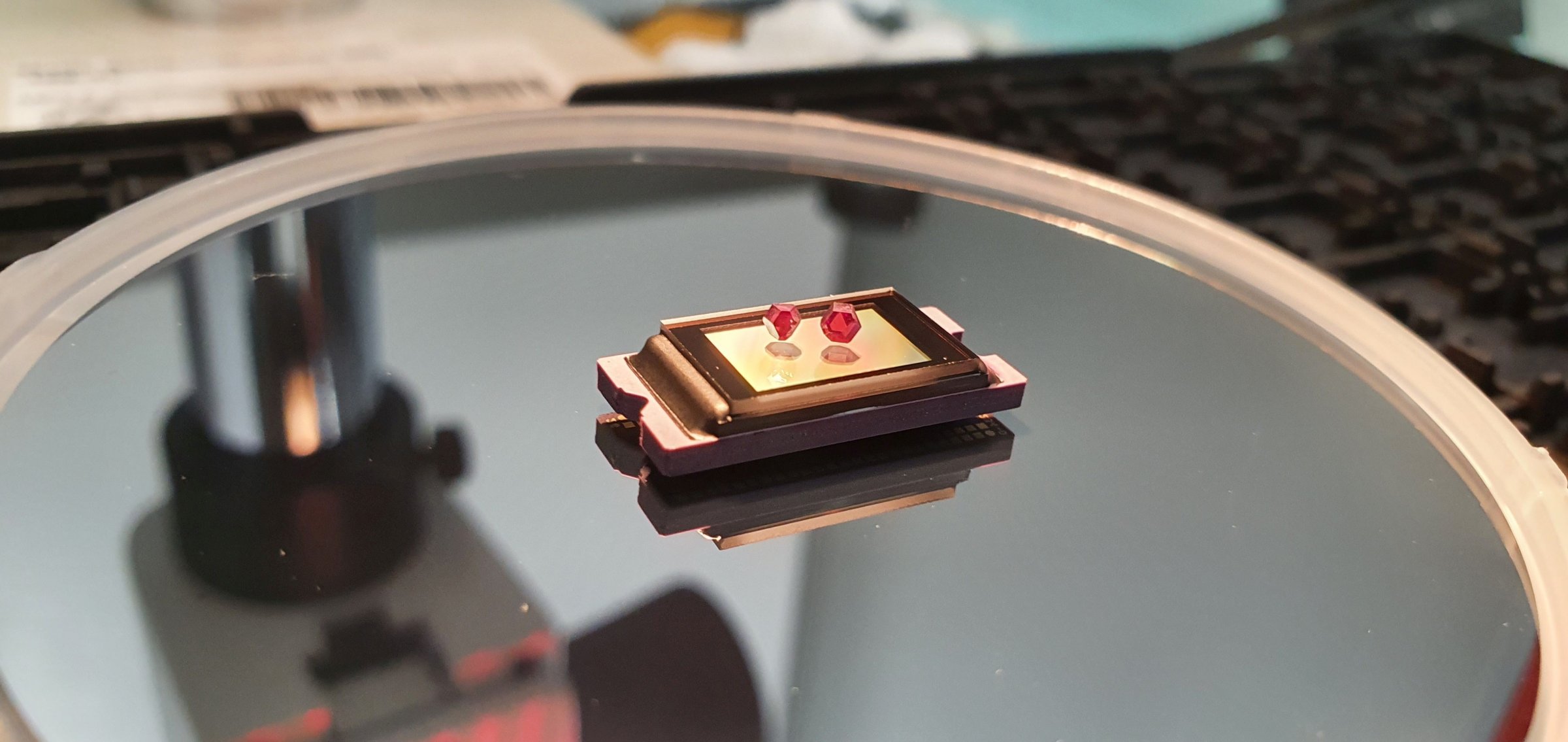December 4, 2023
Quantum computer coming to Frankfurt - headed by FIAS Fellow Thomas Lippert
Prospects for finance, logistics, medicine, climate research and basic sciences
The first quantum computer at Goethe University is installed under the direction of Thomas Lippert. Quantum computing is a future technology that aims to master tasks in the field of computer simulation and AI that were previously too large or even unsolvable with digital methods.
The first Frankfurt quantum computer called "Baby Diamond" is to be delivered by Ulm-based start-up XeedQ GmbH in the first quarter of 2024. The quantum computer uses a small artificial diamond, as known from industrial applications, in which nitrogen atoms are embedded. They each induce a defect that can be used as a central qubit. Spins of atoms can be controlled as further qubits around this defect. This makes practical quantum computing possible.
"With our entry-level system, we are pursuing the idea of a compact quantum computer that can already be used at room temperature, does not require any special cryogenic cooling, can be set up in a small laboratory and is particularly energy-efficient," says Prof Thomas Lippert, FIAS Senior Fellow and head of the Modular Supercomputing and Quantum Computing working group at Goethe University. "With the quantum computer, we are deliberately taking a stand against the current monopolisation of large companies that hide their systems behind paywalls. As it is a compact system, we can already train students hands-on and directly on the device. We have to use this momentum if we want to be fit for the future."
The quantum computer is part of the Frankfurt roadmap, which aims to procure up to 16 high-quality qubits by 2025 and to gradually increase this number in the future. The pilot system will help to build an infrastructure that will closely link quantum computing with high-performance computing.
The system is being developed by XeedQ GmbH, a company based in Leipzig, and at the DLR Innovation Centre in Ulm. XeedQ GmbH is funded by the DLR Quantum Computer Initiative to develop a scalable quantum computer technology.
The quantum computer will be located on the historic Bockenheim University campus, where Stern and Gerlach's famous experiment more than 100 years ago laid the foundation for quantum computing today and was an important part of the first quantum revolution.
Ulrich Schielein, Chief Information Officer (CIO) and Vice President for Digitalisation at Goethe University, explains: "The treatment of completely new categories of problems from the world of finance, logistics in rail, air and road transport, medicine and biology, weather and climate research, but also from basic sciences such as physics and chemistry or the training of basic models of artificial intelligence seems to be feasible in just a few years".
FIAS recently shed light on this topic at the Giersch International Conference: Kristel Michielsen (Jülich) reported on her quantum simulator, i. e. a "classical" computer with GPUs set up as a quantum computer. Alberto di Meglio gave an overview of the quantum initiative at CERN. In a recent lecture at FIAS, Steven Rayan (Saskatchewan, Canada) explained the theoretical foundations of quantum computing and highlighted its significance for society.
